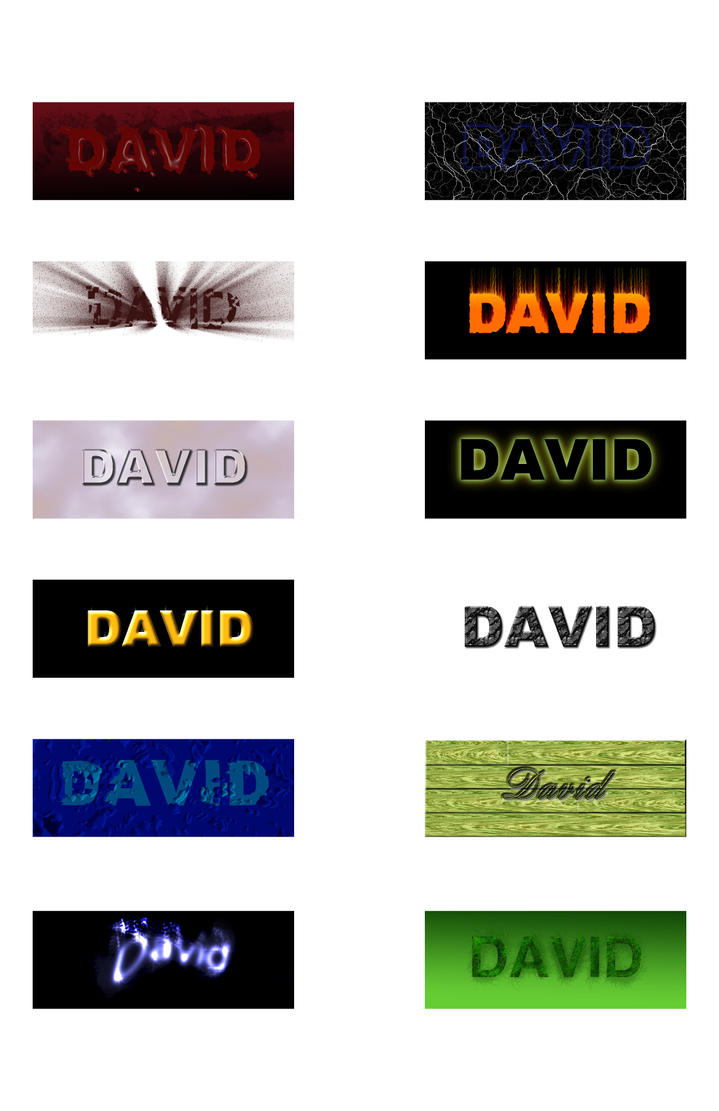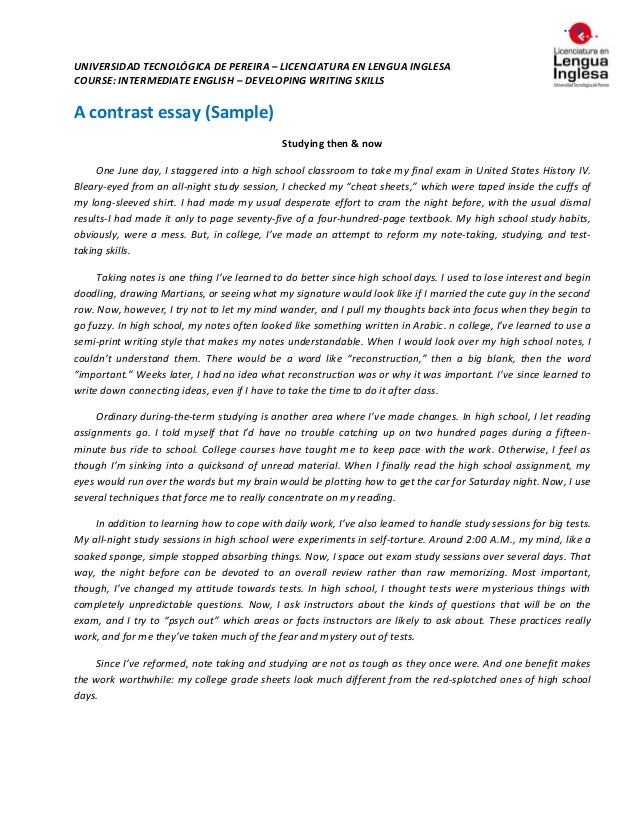
5/15/ · Descriptive research is usually defined as a type of quantitative research, though qualitative research can also be used for descriptive purposes. The research design should be carefully developed to ensure that the results are valid and reliable Descriptive essays are very commonly assigned essays. This type of essay tends to enhance their writing skills and allow them to think critically. A descriptive essay is often referred to as parent essay type. Other essays like an argumentative essay, narrative essay, and expository essay fall into the category of descriptive essays. Also, this essay helps the student to enhance his/her ability to imagine 12/29/ · Descriptive research is a type of research that provides an in-depth description of the phenomenon or population under study. Descriptive research is neither in the category of qualitative research nor in the class of quantitative research, but it uses the features of both types of research
Good Descriptive Essay Examples for All Students
One of the goals of science is description other goals include prediction and explanation. Descriptive research methods are pretty much as they sound — they describe situations. They do not make accurate predictions, and they do not determine cause descriptive type effect. There are three main types of descriptive methods: observational methods, case-study methods and survey methods. This article will briefly describe each of these methods, their advantages, and their drawbacks, descriptive type.
This may help you better understand research findings, whether reported in the mainstream media, or when reading a research study on your own. With the observational method sometimes referred to descriptive type field observation animal and human behavior is closely observed.
There are two main categories of the observational method — naturalistic observation and laboratory observation. The biggest advantage of the naturalistic method of research is that researchers view participants in their natural environments. This leads to greater ecological validity than laboratory observation, descriptive type say, descriptive type.
Proponents of laboratory observation often suggest that due to more control in the laboratory, descriptive type, the results found when using laboratory observation are more meaningful than those obtained with naturalistic observation. Laboratory observations are usually less time-consuming and cheaper than naturalistic observations. Of course, both naturalistic and descriptive type observation are important in regard to the advancement of scientific knowledge, descriptive type.
Case study research involves an in-depth study of an individual or group of indviduals. Case studies often lead to testable hypotheses and allow us to study rare phenomena.
Case studies should not be used to determine cause and effect, and they have limited use for making accurate predictions. There are two serious problems with case descriptive type — expectancy effects and atypical individuals.
Describing atypical individuals may lead to poor generalizations and detract from external validity. In survey method research, participants answer questions administered through interviews or questionnaires.
After participants answer the questions, researchers describe the responses given. In order for the survey to be descriptive type reliable and valid it is important that the questions are constructed properly.
Questions should be written so they are clear and easy to comprehend. Another consideration when designing questions is whether to include open-ended, closed-ended, descriptive type, partially open-ended, or rating-scale questions for a detailed discussion refer to Jackson, Advantages and disadvantages can be found with each type:.
Open-ended questions allow for a greater variety of responses from participants but are difficult to analyze statistically because the data must be coded or reduced in some manner.
Closed-ended questions are easy to analyze statistically, but they seriously limit the responses that participants can give. Jackson,p. In addition to the methods listed above some individuals also include qualitative as a distinct method and archival methods when discussing descriptive research methods.
It is important to emphasize that descriptive research methods can only describe a set of observations or the data collected. It cannot draw conclusions from that data about which way the relationship goes — Does A cause B, or does B cause A?
Nothing could be further from descriptive type truth. Racism can take a toll descriptive type all of us. Its effects can be much greater on the developing brain of an adolescent. Here's how racial trauma impacts teens…, descriptive type.
While ADHD symptoms are usually noticed during childhood, descriptive type, adults with ADHD may experience symptoms in different ways, descriptive type. What is your emotional descriptive type Take our quiz and find out how you might likely react to different situations and how to best navigate your current one.
Take this quiz to track your descriptive type and determine if you may have mania and if you can benefit from seeing a mental health professional, descriptive type. Depression hotlines offer immediate help that's private and confidential. Sudden changes in your teen's behavior can be worrisome. Descriptive type about signs of teen substance use, and how you can help.
Here are the five best online anger management classes of…. A schizophrenia diagnosis may add some challenges to your romantic relationship, but descriptive type strong partnership is still possible with the right support and…, descriptive type. You've seen symptoms and felt mood shifts that are beyond control and noticeable to others. Get all the facts on bipolar disorder here. We're answering your questions and clarifying misconceptions about childhood attention deficit hyperactivity disorder.
The 3 Basic Types of Descriptive Research Methods Medically reviewed by Scientific Advisory Board — Written by Jamie Hale, M. on September 27, Medically reviewed by Scientific Advisory Board — Written by Jamie Hale, M. RELATED How Racial Descriptive type Affects Your Adolescent. What Does ADHD Look Like? Symptoms and Signs.
What Is Your Emotional Type Quiz. Do I Have Mania? Take the Quiz. Read this next. How Racial Trauma Affects Your Adolescent Medically reviewed by Akilah Reynolds, PhD. Symptoms and Signs Medically reviewed by Matthew Boland, PhD. What Is Your Emotional Type Quiz Medically reviewed by Vara Saripalli, descriptive type, PsyD.
Take the Quiz Medically reviewed by Kendra Kubala, PsyD. How Can I Tell If My Teenager Is Using Drugs or Other Substances? Medically reviewed by Akilah Reynolds, PhD. The 5 Best Online Anger Management Classes in Medically reviewed by Matthew Boland, PhD.
Dealing with Schizophrenia in a Romantic Partnership Medically reviewed by Kendra Kubala, PsyD. This Is Bipolar Disorder: All the Facts. Medically reviewed by Timothy J. Legg, PhD, PsyD, CRNP, ACRN, CPH.
What is DESCRIPTIVE RESEARCH? What does DESCRIPTIVE RESEARCH mean? DESCRIPTIVE RESEARCH meaning
, time: 2:19Descriptive Research: Definition, Characteristics, Methods, Examples and Advantages | QuestionPro

The descriptive research method primarily focuses on describing the nature of a demographic segment, without focusing on “why” a particular phenomenon occurs. In other words, it “describes” the subject of the research, without covering “why” it happens Descriptive essays are very commonly assigned essays. This type of essay tends to enhance their writing skills and allow them to think critically. A descriptive essay is often referred to as parent essay type. Other essays like an argumentative essay, narrative essay, and expository essay fall into the category of descriptive essays. Also, this essay helps the student to enhance his/her ability to imagine 12/29/ · Descriptive research is a type of research that provides an in-depth description of the phenomenon or population under study. Descriptive research is neither in the category of qualitative research nor in the class of quantitative research, but it uses the features of both types of research

No comments:
Post a Comment